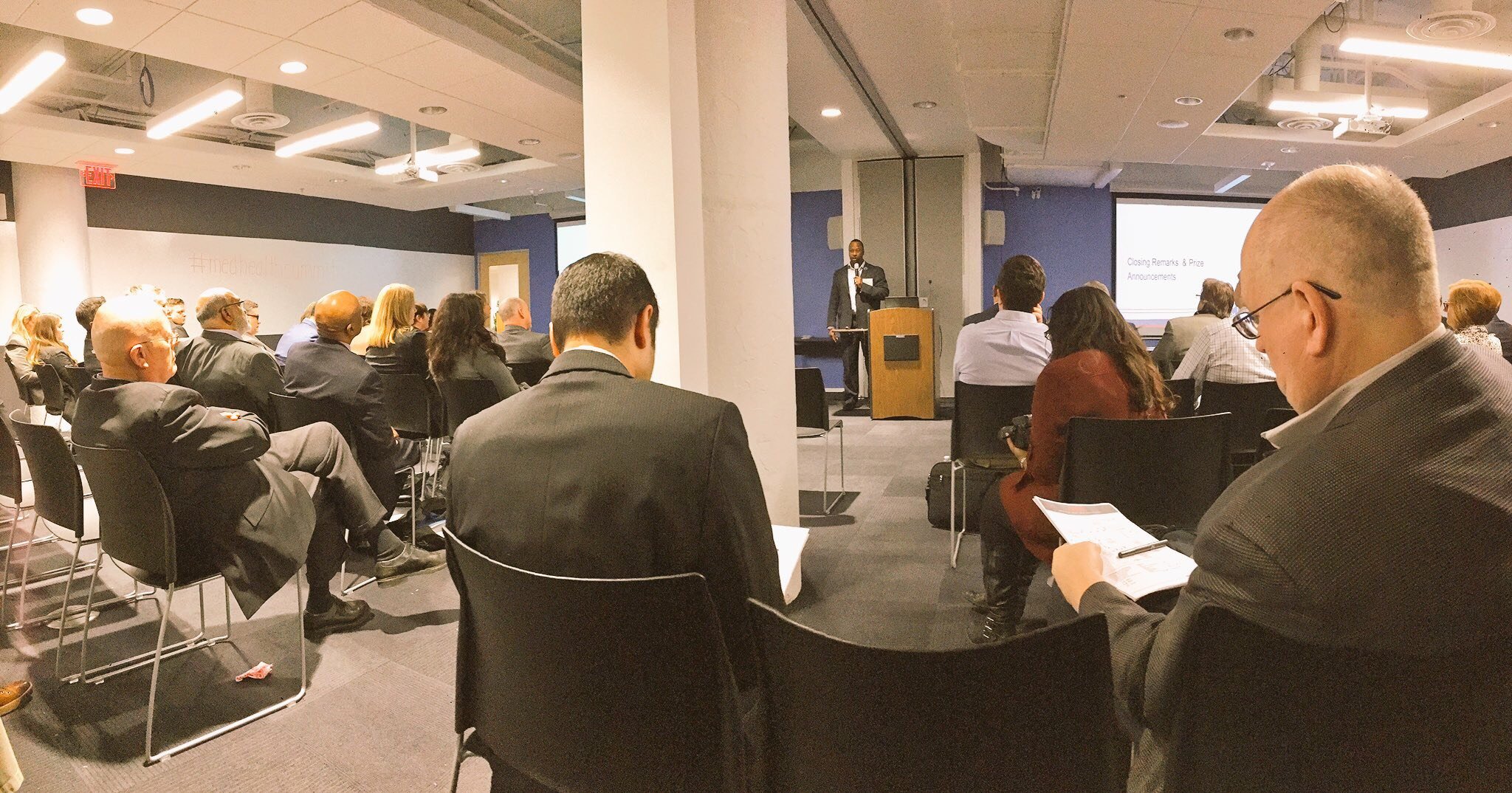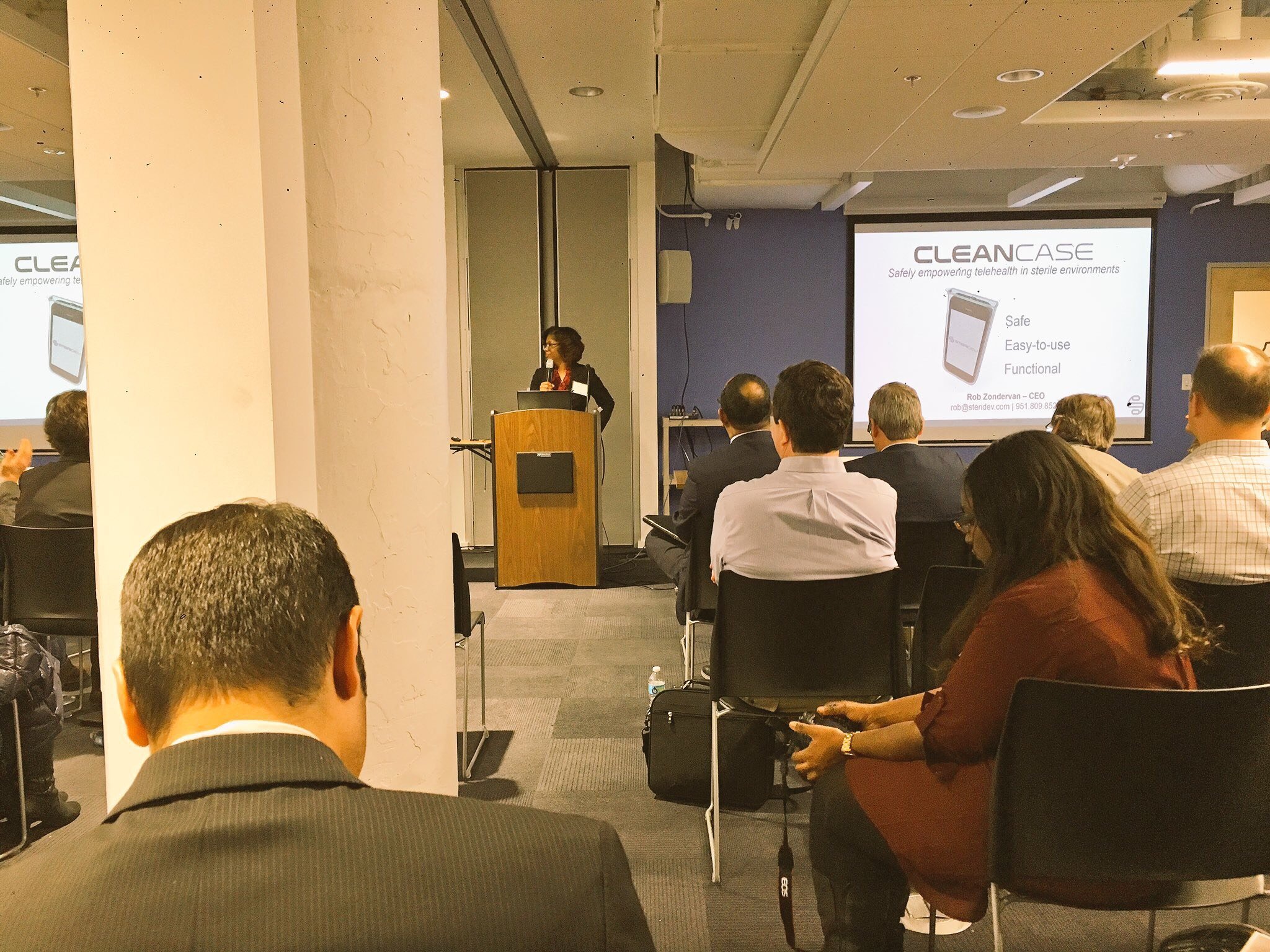Plum Health Blog
Dr. Raquel Orlich is a Family Medicine Doctor in Detroit Michigan
Dr. Raquel Orlich is a Family Medicine Doctor in Detroit Michigan
Dr. Raquel Orlich is a family medicine doctor and she has been practicing with our clinic, Plum Health DPC, in Corktown Detroit for the past 2 years and 8 months. She provides excellent, compassionate care for our patients at Plum Health and delivers comprehensive care for all of her patients.
Dr. Raquel Orlich is Board Certified in Family Medicine and Board Certified in Obesity Medicine. She loves helping her patients with musculoskeletal issues via the use of Osteopathic Manual Medicine (OMM), she enjoys engaging in women’s health care issues, and she enjoys addressing overweight and obesity issues as she helps her patients lose weight and become healthier.
Further, Dr. Raquel Orlich’s patients love the care that she delivers. This is best captured by a recent Google review from one such patient:
By far the best in health care I've ever dealt with. I was only a patient here under a year, but I gleaned so much info and confidence in my health journey. I moved to another state and am constantly wishing I could just hop in to Plum! I saw Raquel Orlich specifically, and she was a joy as well as being supremely comfortable, knowledgeable and communicative. Every test was returned with detailed results so I was never once confused or doing my own research or guessing at how to correct the issue. She always heard me out and was willing to explore even if I was wrong. I was never brushed off and I usually left feeling confident. Chris was amazing and so welcoming as well and made all the labs a breeze. I'd honestly stand outside with a sandwich board on waiving cars into the parking lot like H&R block in tax season if they wanted me to. 🤣 They are so worth it.
Further, Dr. Orlich has been with us for 2 years and 8 months, so she knows many of the resources available to patients here in Detroit and beyond. This allows her to guide patients to the best care options and reach their optimal health.
Thank you Dr. Orlich for all that you do for our clinic and our patients!
The above photo was taken in March 2019 - Dr. Orlich was completing the last few months of her residency program and she was coming by to pick up a fresh new white coat and her new business cards. This was an exciting moment and it was so great to welcome her as part of our Plum Health team.
The Radically Accessible Doctor in Detroit
This week, we took on a new patient on a Sunday evening. They had developed a pretty serious abscess in their armpit over the Thanksgiving weekend. On their drive home, they realized that they should probably have it looked at. By searching Google, they found our clinic!
Our new patient searched "Doctor Open Today", that's when they found Plum Health DPC!
Because it was a Sunday evening, they knew that it would be difficult to find an available doctor in Detroit. They searched "Doctor Open Today" and fortunately found our Plum Health clinic.
I believe that health care should be affordable and accessible. Because of that belief, I am radically accessible for the patients in my care.
So, that patient called around 2:30 pm on Sunday, and I was able to see them at 4:20 pm. We drained the abscess and started the appropriate antibiotic, dispensed from our in-clinic/on-site pharmacy. They had a follow up appointment during regular business hours on Tuesday, and was feeling much better!
Thanks for reading, and have a great day!
- Dr. Paul Thomas with Plum Health DPC
Common Criticisms of Direct Primary Care
In this blog post, I'm going to list some common criticisms to Direct Primary Care and my responses to these criticisms.
In a traditional family medicine practice, each doctor typically sees a panel of 2,500 patients. If each patient comes in twice each year, that means roughly 100 visits each week, assuming that the doctor works 50 weeks each year, or roughly 20 visits each day. In Direct Primary Care, doctors reduce their clinic panel to 500 patients. Now, if each patient visits twice each year, the doctor will see 20 patients each week, or 4 patients each day. If each patient visits three times each ear, the doctor will see 30 patients each week, or 6 patients each day. This allows the doctor to spend up to an hour with each patient and use the remaining time in their schedule to answer phone calls, texts, and emails as well as handle the administrative duties that go along with running a Direct Primary Care practice.
The biggest criticism of doctors who switch from a traditional or fee-for-service practice to Direct Primary Care is this notion of patient abandonment. This means that if the doctor cuts down their practice from 2,500 patients to 500 patients, there will be 2,000 patients that are "abandoned" or without primary care services.
My response to this is simple: I will no longer perpetuate a bad system. In the current fee-for-service system, patients do not have enough time with their doctor for a thorough evaluation, for all of their questions to be answered, and to feel truly cared for. In the current fee-for-service system, doctors are rushing from room to room to room and are unable to provide the kind of high-quality care that their patients deserve,
In the current system, primary care doctors are marginalized and devalued, predisposed to burn out and leaning towards early retirement. Younger medical students see their burnt-out, grumbling, and overstretched attending doctors in Family Medicine and choose not to become primary care doctors in the first place. Why earn less than other specialties in a field that is less-than fulfilling?
Direct Primary Care doctors are fighting to make primary care relevant again, to restore the doctor-patient relationship, and to create value for patients in a way that the current fee-for-service system cannot.
There's an old adage: "take care of yourself so you can care for others", and it's something that primary care doctors have forgotten about. The expectation of the system is that we should work hard, keep our heads down, and not question the health care administrators who send an overwhelming volume of patients into our clinics each day.
But when we begin to sacrifice the quality of our work simply because we don't have enough time, it's time to take a stand and re-think our practices.
This brings me to the next criticism: how many conditions can a primary care doctor really treat? aka how much coverage can a family medicine doctor really provide?
When a well-trained family medicine doctor is able to practice at the top of their training, they are able to manage between 80 and 90% of all patient concerns. From sore throats, to blood pressure management, Pap tests, skin biopsies, abscess drainage, diabetic management, and beyond, family medicine doctors are able to care for a broad and diverse range of conditions.
The secret sauce in Direct Primary Care is the amount of time we are able to spend with our patients. If I have an hour, I can use it to drain an abscess, to talk about the efficacy of your antidepressants, to draw your blood for the lab work you need, to remove that ingrown toenail, to fully evaluate your vertigo, to evaluate your child's Vanderbilt scores for ADHD, to dispense the necessary medications and more.
In the current fee-for-service system, the expectation is that primary care doctors perform a cursory evaluation and then make a referral to a specialist. In the Direct Primary Care model, primary care doctors have more time to address concerns to the fullest of their training. And if that specialty referral is necessary, Direct Primary Care doctors have enough time to personally manage the transition of care, to make the follow up phone call and to get a full picture of what happened during that referral.
To summarize, Direct Primary Care doctors who leave the traditional fee-for-service system are not abandoning their patients. Rather, they are now free to practice medicine to the best of their ability by having enough time to give high-quality, thoughtful, and comprehensive primary care services to their patients. This will allow burnt out doctors to stay in practice for a longer period of time and it may inspire the next generation of medical students to choose primary care.
Thanks for reading, and have a wonderful day,
- Dr. Paul Thomas with Plum Health Direct Primary Care
MedHealth Summit at TechTown
Yesterday, I had the opportunity to attend the MedHealth Summit at TechTown. It was a great event that brought together healthcare organizations and innovators. Their aim was to catalyze the development of solutions and adoption of technologies that use health IT, digital platforms, and medical devices to solve key healthcare challenges in SE Michigan and Southwest Ontario.
This was a great event in that it encouraged cross-border collaboration, something that we don't have enough of in the Healthcare industry. The summit also served as a platform for collaboration and facilitated an environment conducive to networking with colleagues working on innovative ideas in this space.
The event concluded with a pitch competition for those creating scaleable, pre-market platforms and devices. The winner was Rob Zondervan and his company created SteriDev, a pre-market piece of medical equipment that allows doctors and surgeons to take their iPhones into a sterile operating room.
SteriDev won $10,000 in grant money via the pitch competition and they plan on making the product in Michigan. This device would definitely be useful for taking photos of intra-operative findings for orthopedic surgeons and interventional radiologists, and they have a reasonably-sized market to pursue.
A special thanks to Paul Riser and his team of collaborators for setting everything up and creating a great event!
Thanks for reading and have a great day,
Paul Thomas, MD
Flu Cases Increasing
You need a flu shot. I will say it again, you need a flu shot. Flu cases are on the rise currently, see this article from the CDC. Yes, the flu most commonly affects the very young and the very old, but each year young adults are hospitalized and die because of the influenza virus. I'm writing today to dispel some myths and tell you that you can be a part of the solution.
As a part of routine care at Plum Health, I offer a flu shot to all of my members. It costs $10.53 because I buy it at wholesale and I don't mark up the cost. Inevitably, objections are raised by my patients. The most common being "I've never had the flu, so I don't see the point in getting the vaccine" or "I seem to get the flu after I get the flu shot".
First of all, the vaccine strain produced this year is a particularly good one. The composition of U.S. flu vaccines is reviewed annually and updated to match circulating flu viruses. Flu vaccines protect against the three or four viruses that research suggests will be most common. For 2016-2017, three-component vaccines are recommended to contain:
- A/California/7/2009 (H1N1)pdm09-like virus,
- A/Hong Kong/4801/2014 (H3N2)-like virus and a
- B/Brisbane/60/2008-like virus (B/Victoria lineage).
Second, you can't get the flu from getting the influenza vaccine. When you get a flu shot (influenza vaccine), I inject inactivated viral particles, not the virus itself. By giving you inactive viral particles or proteins from the virus, your body's immune system is able to recognize these as foreign and mount an immune response. During that immune response, you may have a slight temperature and you may feel tired and your body shifts it's energy to meet your immune system's needs, but you will not get "the flu" because you don't have the whole virus.
Because you get the flu shot, your body will recognize the actual virus should you get it. When your body sees the proteins that make up the virus, it will mount an even stronger immune response, killing the virus more quickly and keeping you out of the hospital.
Common places to pick up the flu virus include door knobs, the treadmill at the gym, the grocery store key pad, the gas pump, etc... You can't possibly disinfect all of these surfaces, so just do yourself a favor, be proactive and get the flu shot.
Importantly, influenza activity most commonly peaks in the United States between December and March. Additionally, the flu season can last until May.
I say that you can be a part of the solution because you can prevent the spread of the flu. One, get the flu shot. If you happen to get the virus, it will be easier for your immune system to fight it and you will be less likely to pass it on to your loved ones. Even if you're "fine" without it, your grand parents, parents, children, nieces, and nephews may not. So, by protecting yourself, you can protect them.
Finally, wash your hands well! This is probably one of the best things that you can do to prevent the spread of germs, viruses, and bacteria.
Thanks for reading and have a great day,
- Paul Thomas, MD
Our Influenza Vaccine stock at Plum Health DPC, a Family Medicine Practice at 1759 West 21st Street, Detroit, MI 48216.
Plum Health DPC + Detroit SOUP
I am very excited that Plum Health DPC has been invited to pitch at Detroit SOUP on Sunday, September 25th at 5 pm at the Jam Handy, 2900 E Grand Blvd, Detroit, MI 48202.
The Detroit SOUP is a wonderful organization, and you can read more about what they do here. Succinctly, SOUP curates a monthly dinner where four ideas are shared and voted upon by the people who attend. Detroit SOUP states it this way:
"Detroit SOUP is a microgranting dinner celebrating and supporting creative projects in Detroit. For a donation $5 attendees receive soup, salad, bread and a vote and hear from four presentations ranging from art, urban agriculture, social justice, social entrepreneurs, education, technology and more. Each presenter has four minutes to share their idea and answer four questions from the audience. At the event, attendees eat, talk, share resources, enjoy art and vote on the project they think benefits the city the most. At the end of the night, we count the ballots and the winner goes home with all of the money raised to carry out their project. Winners come back to a future SOUP dinner to report their project’s progress."
Plum Health DPC will have a four minute time slot to present our idea for affordable, accessible healthcare services in the City of Detroit and beyond. If you want to see better healthcare options in the City and Metro region, if you care about creating a valuable and sustainable healthcare alternative, please come out and support us!
The Facebook event can be found here, September 25th Detroit SOUP.
Thank you!
- Paul Thomas, MD
Plum Health DPC, making healthcare personal again
Hello all, this is Dr. Paul Thomas and I'm making healthcare personal again.
I'm launching Plum Health DPC this Fall and I'm starting my Beta Testing in September/October with a small number of members. Rather than having 2,500 patients like a typical Doctor's office and billing insurance, I will limit my practice to 500 members and charge a $49 membership fee. I will not bill your insurance company, I am not insurance, this is not an insurance plan.
With the membership, you can contact me at any time via phone, text or email. You can also be seen at any time that you like without a co-pay. Members also get wholesale medications, at-cost labs, and at-cost imaging with pass-through savings. I basically try to save my members a lot of money by getting them deals in the healthcare ecosystem.
Importantly, I limit my practice to 500 members, so that I can spend 30 minutes - 1 hour during each visit with you. During this time, we can get to the root of your issue. Rather than being rushed, we can talk about strategies that can help you be healthier. And if you forget to ask me something during the visit, just send me a text and I will do my best to answer your question ASAP.
The time that you get with me allows us to build a trusting and beneficial relationship, so that I can learn about your health goals, and help guide you to better health. That's why we call it Direct Primary Care - we serve you, the customer/member/patient directly with excellent primary care services.
If you want to learn more, send me a message or sign up at our website, Plum Health DPC. If you want to be a part of the Beta Testing, now's a great time to sign up!
- Paul Thomas, MD
The Basics of Direct Primary Care
Direct Primary Care is a relatively new idea, so it is worth discussing the founding principles.
Direct Primary Care (DPC) is an innovative alternative payment model for primary care being embraced by patients, physicians, employers, payers and policymakers across the United States. The foundation of DPC is an enduring and trusting relationship between a patient and their primary care doctor.
Empowering this relationship is the key to achieving superior health outcomes, lower costs and an enhanced patient experience. DPC fosters this relationship by providing excellent customer service.
In terms of customer service, the health care system in the United States has failed. There are so many frustrations from the perspective of a customer: long wait times to get an appointment, long wait times at the office, unresponsive doctors, as well as confusing and unclear pricing.
Direct Primary Care addresses these shortcomings of the fee-for-service system head on. When you enroll in a DPC practice, you will have your doctor’s cell phone number, email address, and the assurance that you can have a same-day or next-day appointment, guaranteed.
In addition, DPC enables unhurried interactions – you won’t feel like you’re being rushed out the door with your DPC doctor. These extended visits allow for discussions to assess lifestyle choices, behaviors, and treatment decisions that maximize long-term health and wellbeing.
How is this possible? Direct Primary Care doctors typically limit their practice size to 500 members. This relatively small panel size allows doctors to be committed to their patients, to deliver excellent customer service.
To become a member of Plum Health Direct Primary Care in Detroit, Michigan, check out our contact page, here.
- Paul Thomas, MD
Plum Health Direct Primary Care for Employers
Plum Health Direct Primary Care can deliver high-quality, cost-saving care for businesses of any size.
Direct Primary Care is an exciting alternative to the traditional fee-for-service model. This is true for individuals, but especially true for small, medium, and large businesses.
To the employers and HR personnel of the world, Plum Health can provide comprehensive family medicine services to your employees for a low monthly cost. Imagine having a doctor that your employees can call, text, or email at anytime. Your employees can also visit our doctor anytime without a copay.
We believe that this increased responsiveness and availability can reduce down-stream costs. We also believe that your employees will be more proactive about their health when they don't have to pay a co-pay. For example, we treat simple bladder infections in the office before they become pyelonephritis in the ER, coughs and colds before they become pneumonia.
There are several benefits to enrolling in a Direct Primary Care plan. Here are three of the big ones for employers:
1.) Decreased Absenteeism
By offering efficient and convenient care, we can reduce employee absenteeism. Because there is very little wait time to see the Doctor, simple ailments are caught before they become bigger problems.
2.) Reduced Medical Expenses
Every time that we prevent a visit to the Urgent Care or the Emergency Department, we save you hundreds and thousands of dollars. To optimize your value, we recommend pairing our services with a high-deductible, low-premium insurance plan.
3.) Attracting and Retaining Talent
By offering a health care plan that is a meaningful benefit to your employees, you can leverage recruitment. We know the high quality care that we are capable of delivering, and your employees will appreciate these services.
To find out more, call us at 313.444.5630.
- Paul Thomas, MD


















